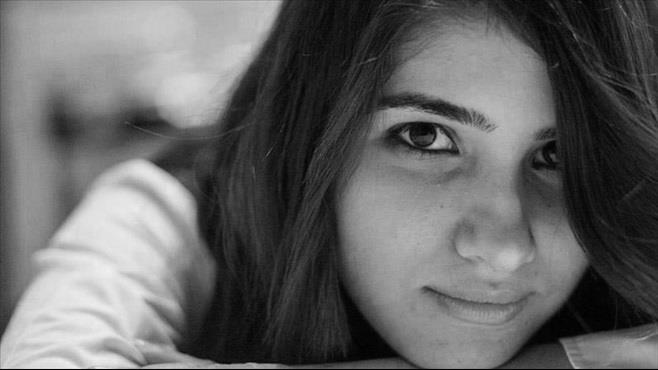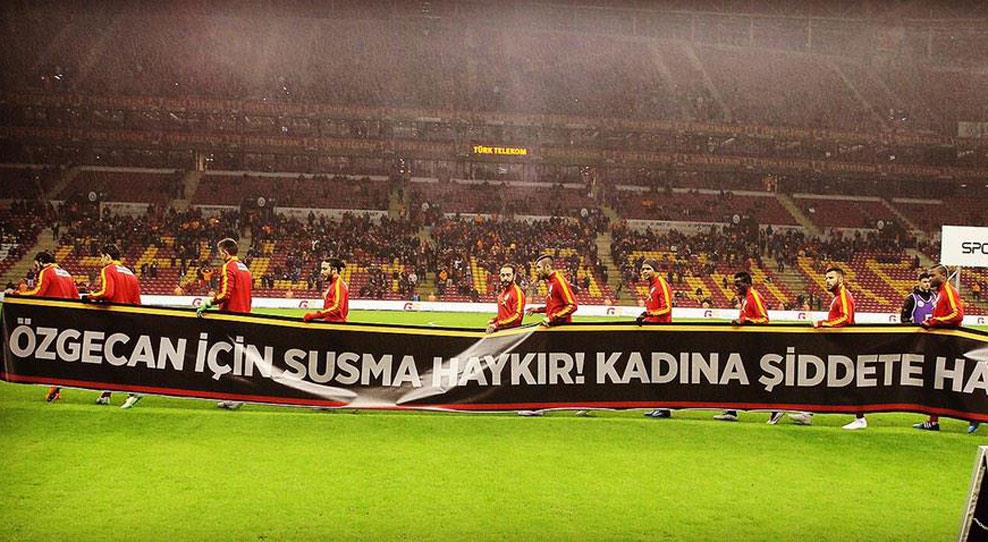I’m afraid to speak
Hundreds of horrible stories shared by the women who have been victims of sexual abuse have been posted on social media under the hashtags #ЯнебоюсьСказати and #ЯнеБоюсьСказать (Ukrainian and Russian for “I am not afraid to speak up) over the past couple of days. The campaign, aimed at making a problem that is hushed up in most cases visible, was organized by Anastasia Melnichenko, a public activist and editor of the Ukrainian magazine “Zhyla.
“I want us, women, to speak up today. I want us to talk about the harassment that the majority of us have experienced. I don’t want us to offer excuses. “I was walking in sportswear in broad daylight, but I was still groped. We don’t have to make excuses. We are not to be blamed. The blame ALWAYS lies with the abuser. I am not afraid to speak up. And I don’t feel guilty, Anastasia Melnichenko wrote on her Facebook page on July 5.
• Turkey: murder and violence against women on the rise
• What restaurants are off limits to women in Azerbaijan and why?
• Women in Armenia are postponing having children due to financial problems
In remembrance of Özgejan

It’s not the first flashmob of this kind. Özgejan Aslan, 20 and a Turkish university student, was murdered on February 11, 2015. On the day of her murder, Özgejan went to a shopping center with one of her friends. Afterwards, she took a minibus to return home.
Upon seeing that she was the only passenger in the minibus, the driver of the minibus attempted to rape Özgejan, but she resisted. Following this, he stabbed her multiple times and beat her to death with an iron rod.
The hashtag #sendeanlat (‘Tell your story’) about sexual harassment and violence against women in Turkey, which appeared on Twitter following the incident, has turned into a real global trend.
Over 5,000 people throughout Turkey came to attend Özgejan Aslan’s funeral. Women carried her coffin in violation of the Islamic tradition. Mass protest rallies were organized in many cities across Turkey. FC Galatasaray players appeared on the field holding a poster that read: “Don’t be silent in the memory of Özgejan. Say ‘No’ to violence against women!
Violence against women is one of the most common violations of human rights worldwide. Gender-based discrimination, domestic violence, sexual harassment-these are the problems that are most commonly hidden from society, since any publicity may jeopardize the victim herself.
Many people ask: “How is a Facebook campaign supposed to help women? They undermine the reality that many victims of sexual abuse and domestic violence have been concealing everything for years in fear of public condemnation.
 Photo: aljazeera.com.tr
Photo: aljazeera.com.tr“Sorry, sister”
“I also have something to say. But it has turned out to be quite difficult. I, a 40-year-old auntie, found it difficult to retell all that. I wrote and then erased it 10 times. The memories of you, a 9-year-old girl, once molested by an adult male, are ruining your entire inner world. It seems it was quite a long time ago. It seems, there were dozens of cases, when fear made you turn into an ‘obedient nothing’, but that very fear of a 9-year-old girl has maintained for a lifetime,” Matanat Azizova, ex-head of the Azerbaijani Women Crisis Center, share her story on her Facebook page.
She called on the Azerbaijani women to join the online flashmob.
However, not a single story has been shared under the hashtag #mendanishmagdangorxmuram. And no wonder. The Azerbaijani community tends to blame a woman for everything that has happened to her. The Facebook’s Russian segment has actively supported the initiative and it has been a real surprise for many to discover that there are many abusers among the taxi drivers in Azerbaijan.
In one case, a taxi driver got scared, when he realized that the victim was a virgin: “Sorry, sister, I didn’t know. Please, don’t tell anyone, don’t let my child grow up without a father.”
There are so many stories, told in the third person, about the women who don’t dare speak about it. More often than not even the relatives blame the victim. “Mother beat me and cried, beat and cried.” This is a story of the woman, who was threatened with a knife and raped in a backstreet at the age of 14.
Matanat Azizova knows about the Azerbaijani women’s problems firsthand. Hundreds of women, who became the victims of sexual abuse and domestic violence, have appealed to the Women Crisis Center for help during more than 15 years that she has been working there.
“There are a number of articles in the Criminal Code of the Republic of Azerbaijan that envisage protection against violation of sexual integrity. These are, in particular: Article 149 – rape, Article 150 – violent actions of sexual nature, as well as Article 151- sexual coercion. However, the young ladies prefer to hash up the matter in the fear of publicity, mockery and reprimands. More often than not, the woment have no support even from the closest people, says Azizova.
In her words, even the judicial proceedings on the cases of sexual harassment in Azerbaijan are usually accompanied with humiliating interrogations and hinting, that makes the people around confident in the victim’s guilt.
“Regrettably, the imperfect nature of our judiciary with regard to the cases of violence against women gives men a sense of impunity, the human rights activist believes.
I was ashamed to go home
“I have achieved justice. My tormentor is behind bars. But only God knows what I have been through, Aliya Mansurova, a victim of sexual and physical abuse, shares her story.
She met Rufat Mehtiyev, her torturer, on the Internet. They communicated online and on the phone for some time. And when they met, this man convinced Aliya to come around to his place.
“He persuaded me: ‘Let’s drop by my place for five minutes. You can look around to find out what dowry we will need to buy and I will show you my dog. I swear, I won’t touch you.’ I trusted him, but he raped me, says the woman.
“I felt awful. I was hurt and ashamed. I tried to leave, but he was intimidating me and urged me to stay. I was ashamed. I was thinking about what people would say when I returned home afterwards, says Aliya.
So, she ended up being Rufat’s ‘common-law wife’ and, in reality, his hostage, for two and a half months.
The man terrorized her, regularly beating and raping her, as well as intimidating and once even beating her elderly father, who tried to take his daughter back home.
“He would bang my head against the floor, drag me by my hair around the room, humiliate me and call me names. Unfortunately, I almost immediately became pregnant. And he was jeered at me, saying: “Lay down on your back, I will jump on your stomach. He beat me to the point of toxemia. I felt nauseated. I kneeled in front of him, begging him to let me go, and he said in response: “You won’t be able to leave this place alive, says Aliya.
Aliya’s father appealed for help to the public organization Pure World.
“He was very scared. This man was threatening the family, resorting, among other things, to physical violence. We received his application and immediately set off to the Sabunçu district, to the 15th police department. We talked with the chief there. They refused to believe that this was really happenning, says Mehriban Zeynalova, the head of the Pure World NGO.
She remained persistent and managed to convince the police officers to go to Rufat Mehtiyev’s place. Rufat had to let them in.
Aliya Mansurova underwent forensic examination that attested the signs of bludgeons and serious craniocerebral trauma. At present, apart from psychological problems, she is also suffering from severe headaches and has partial memory loss.
Criminal proceedings against Rufat Mehtiyev were instituted under Article 128 (Premeditated infliction of minor bodily injuries) of the Criminal Code of Azerbaijan. This article necessitates a fine or one-year of penal labor.
Afterwards, thanks to numerous publications in the press and publicity on social media, law-enforcement bodies were forced to charge Mehtiyev pursuant to Article 133.2.2 (Infliction of strong physical pain or mental suffering to a woman, who is clearly pregnant), Article 133.2.6. (Infliction of physical and mental suffering with the application of torture); Article 150.1. (Violent actions of a sexual nature) and Article 149 (Rape) of the Criminal Code of the Republic of Azerbaijan.
As a result, Mehtiyev was sentenced to 10 years and 11 months in prison.
It’s her fault
In this case, the Azerbaijani society actually defended the woman. However, there were people who blamed the victim for what had happened to her. They supported the abuser, saying she shouldn’t have gone to his place and that it was all her fault.
The tendency to blame the women who are victims of violence in all cases is so strong in Azerbaijan that even murder reports are accompanied by similar comments.
“That guy killed his sister after he learned she was dating someone, the media reported, and people wrote: “Attaboy! He defended his honor.”
“A husband stabbed his ex-wife after learning that she was going to get married for the second time. “That’s a man! A real man, they approved.
“A young lady was raped in the street at 3 a.m. “It served her right! What was she doing in the streets at night? I suppose she was some kind of prostitute. It was she, who provoked it, cheerfully exclaimed others.
How are the campaigns like #ЯнеБоюсьСказать (‘I am not afraid to speak up’) and others going to help these women? They will gradually but surely change society’s attitude towards cases of sexual abuse and will let women know that they are not alone in their troubles.




















